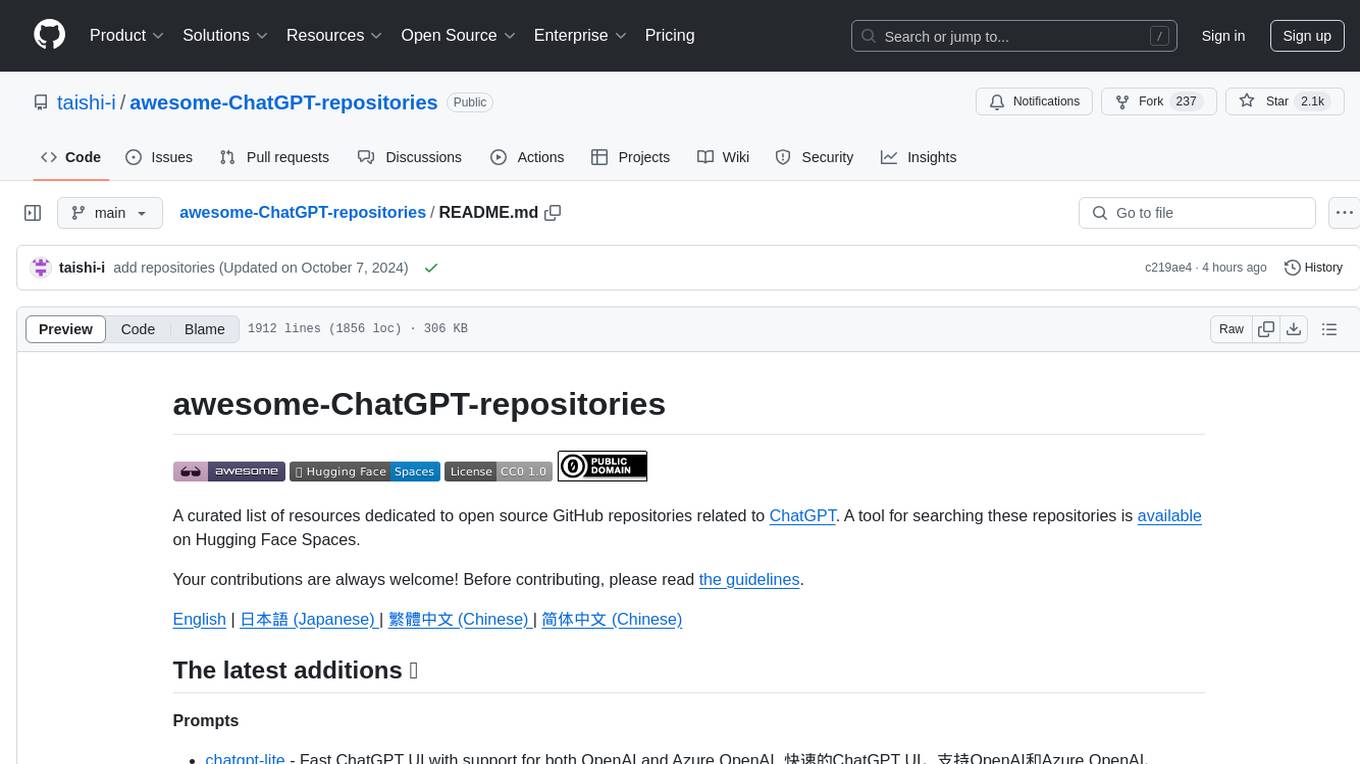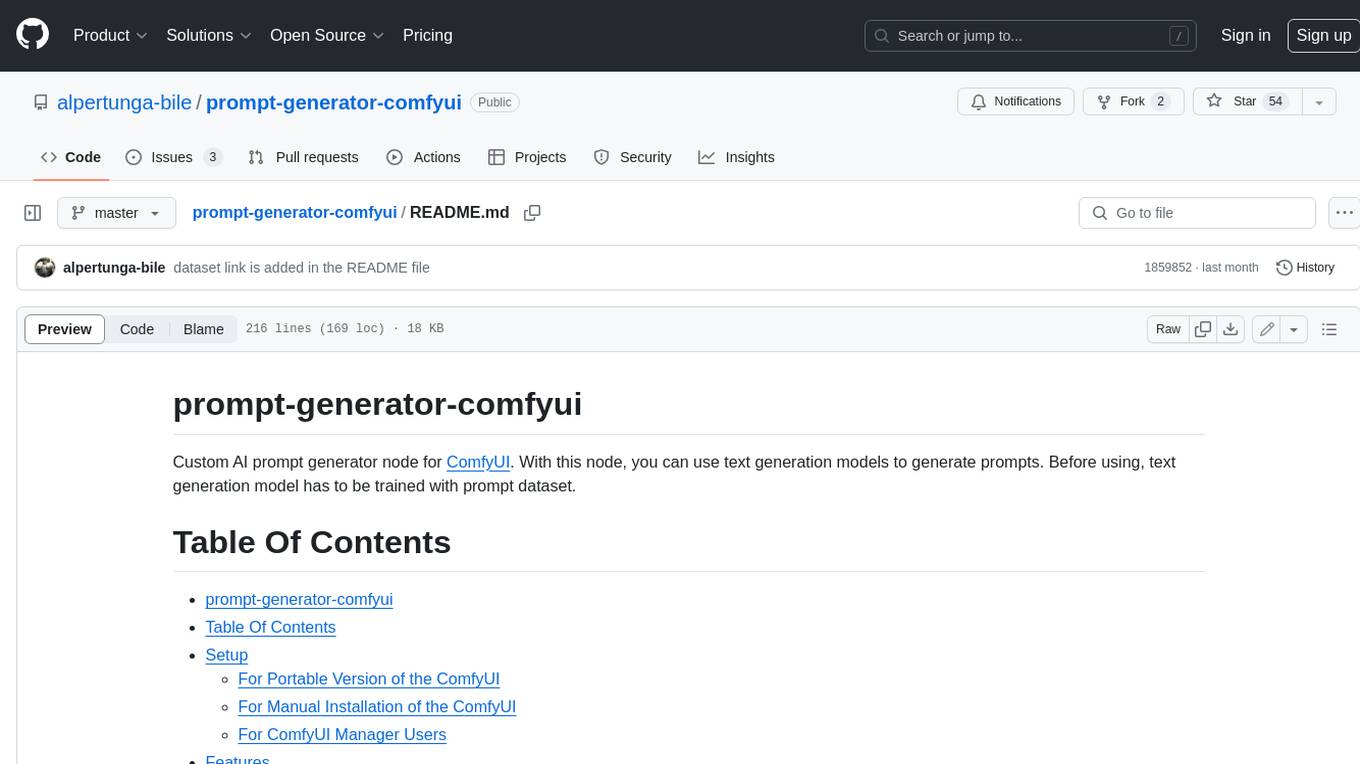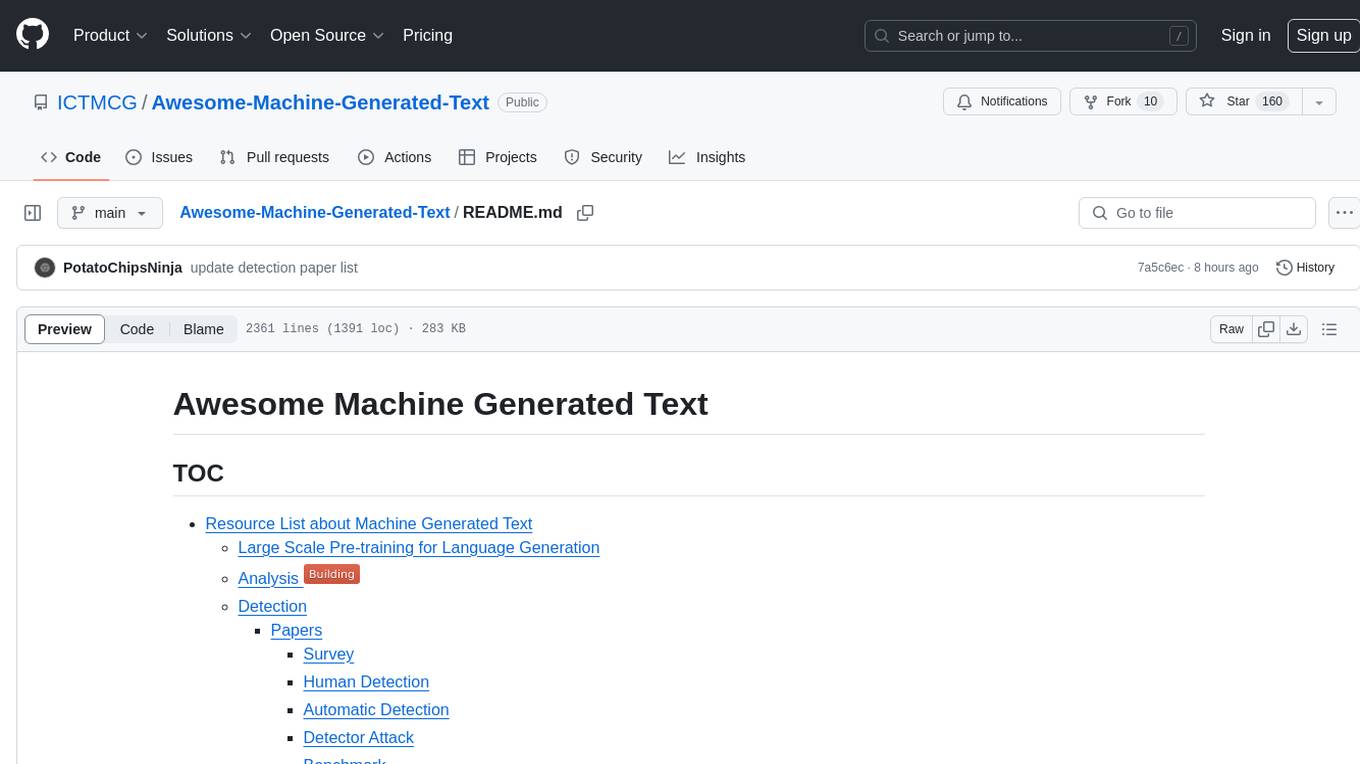AI tools for parlant
Related Tools:

Pralin AI
Pralin AI is an AI application that offers expert-level support and strategic guidance for Palantir implementations. Their services are designed to accelerate projects, reduce risks, and maximize the value of Foundry and AIP investments. With a focus on accelerating project timelines, improving outcomes, and building internal capabilities, Pralin AI provides field-validated data and AI mastery across various industries. Leveraging extensive Palantir experience and a network of industry experts, Pralin AI aims to revolutionize implementations and drive digital transformation for their clients.
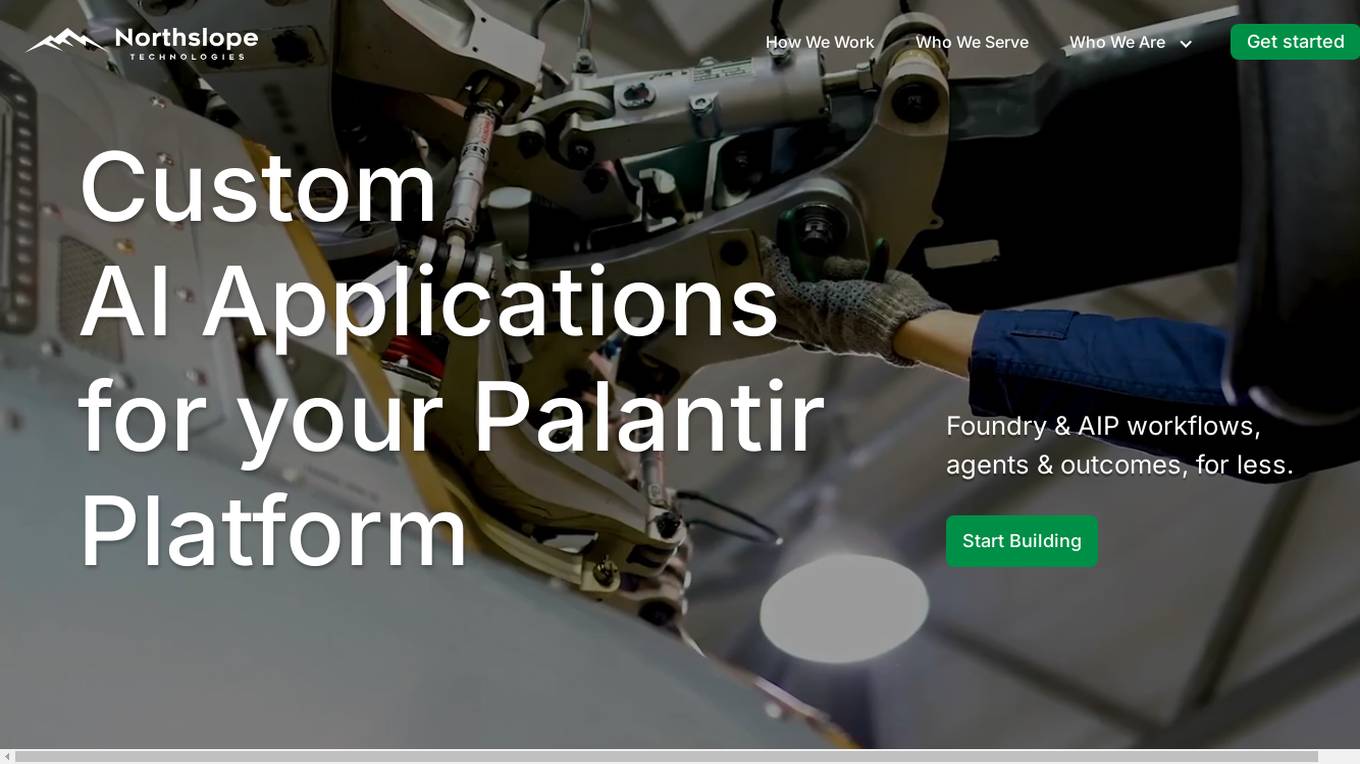
Northslope Technologies
Northslope Technologies is a leading global partner of Palantir, specializing in custom AI applications for the Palantir Platform Foundry & AIP workflows. They offer transformational AI software running natively in Foundry, with a global team headquartered in Denver and London. Northslope works with ambitious organizations to build end-to-end use cases, provide dedicated engineer upskilling, and deliver Palantir-quality solutions at an affordable price point. They pride themselves on deep partnerships, unmatched expertise, and a forward-deployed engineering approach.
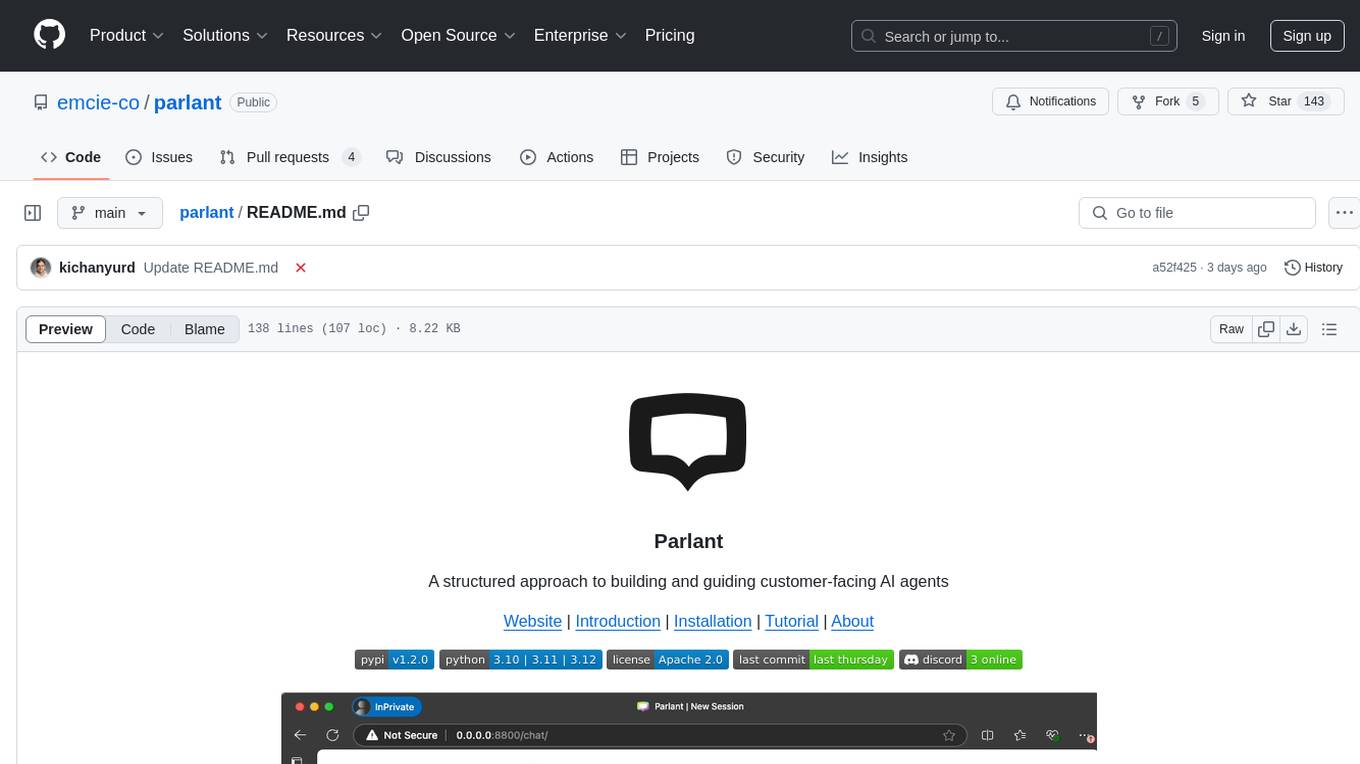
parlant
Parlant is a structured approach to building and guiding customer-facing AI agents. It allows developers to create and manage robust AI agents, providing specific feedback on agent behavior and helping understand user intentions better. With features like guidelines, glossary, coherence checks, dynamic context, and guided tool use, Parlant offers control over agent responses and behavior. Developer-friendly aspects include instant changes, Git integration, clean architecture, and type safety. It enables confident deployment with scalability, effective debugging, and validation before deployment. Parlant works with major LLM providers and offers client SDKs for Python and TypeScript. The tool facilitates natural customer interactions through asynchronous communication and provides a chat UI for testing new behaviors before deployment.
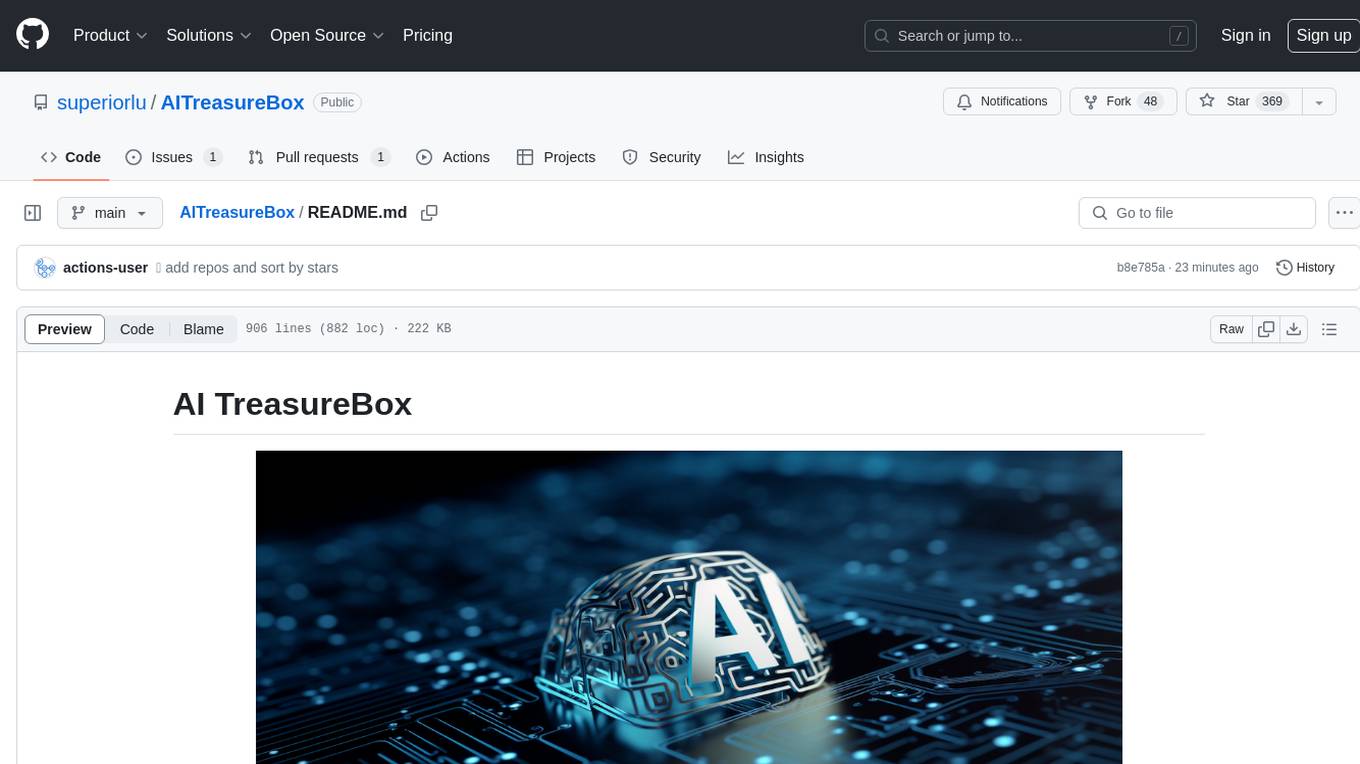
AITreasureBox
AITreasureBox is a comprehensive collection of AI tools and resources designed to simplify and accelerate the development of AI projects. It provides a wide range of pre-trained models, datasets, and utilities that can be easily integrated into various AI applications. With AITreasureBox, developers can quickly prototype, test, and deploy AI solutions without having to build everything from scratch. Whether you are working on computer vision, natural language processing, or reinforcement learning projects, AITreasureBox has something to offer for everyone. The repository is regularly updated with new tools and resources to keep up with the latest advancements in the field of artificial intelligence.
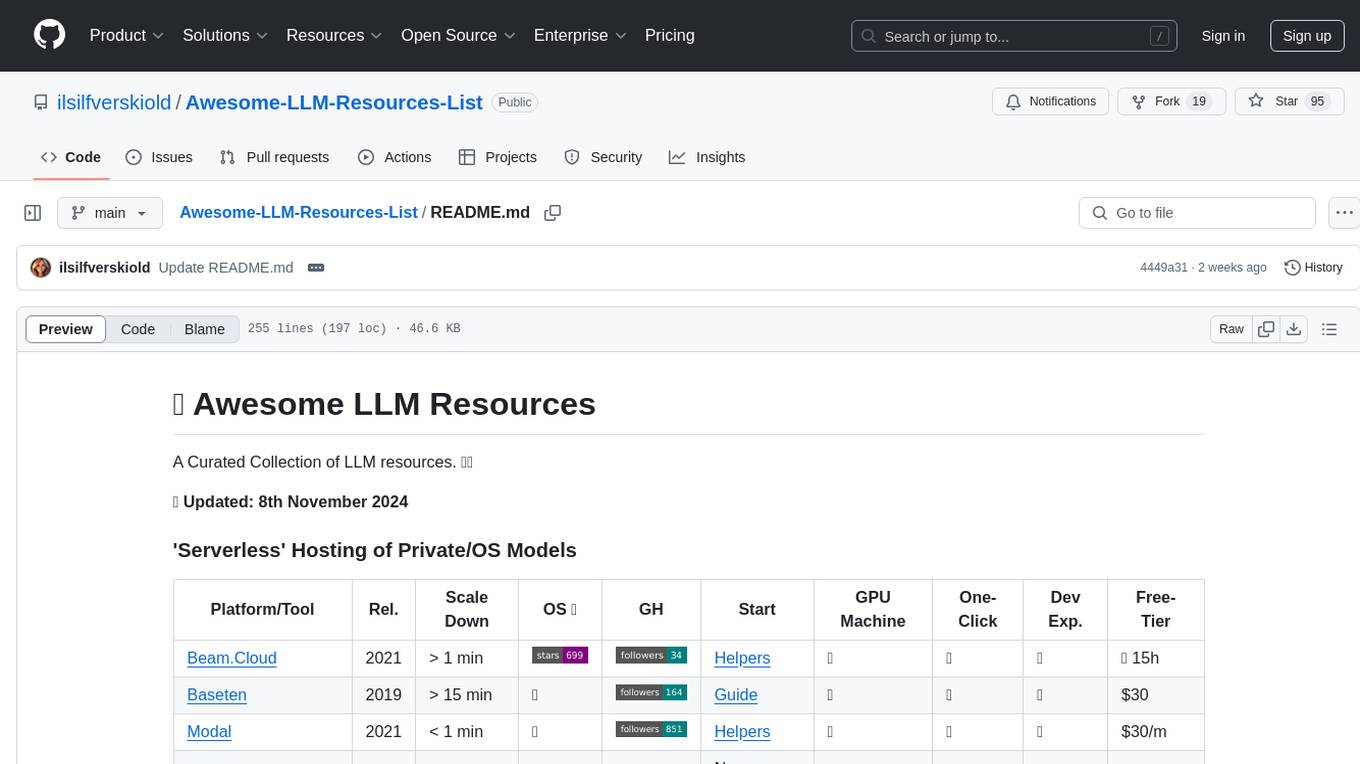
Awesome-LLM-Resources-List
Awesome LLM Resources is a curated collection of resources for Large Language Models (LLMs) covering various aspects such as serverless hosting, accessing off-the-shelf models via API, local inference, LLM serving frameworks, open-source LLM web chat UIs, renting GPUs for fine-tuning, fine-tuning with no-code UI, fine-tuning frameworks, OS agentic/AI workflow, AI agents, co-pilots, voice API, open-source TTS models, OS RAG frameworks, research papers on chain-of-thought prompting, CoT implementations, CoT fine-tuned models & datasets, and more.
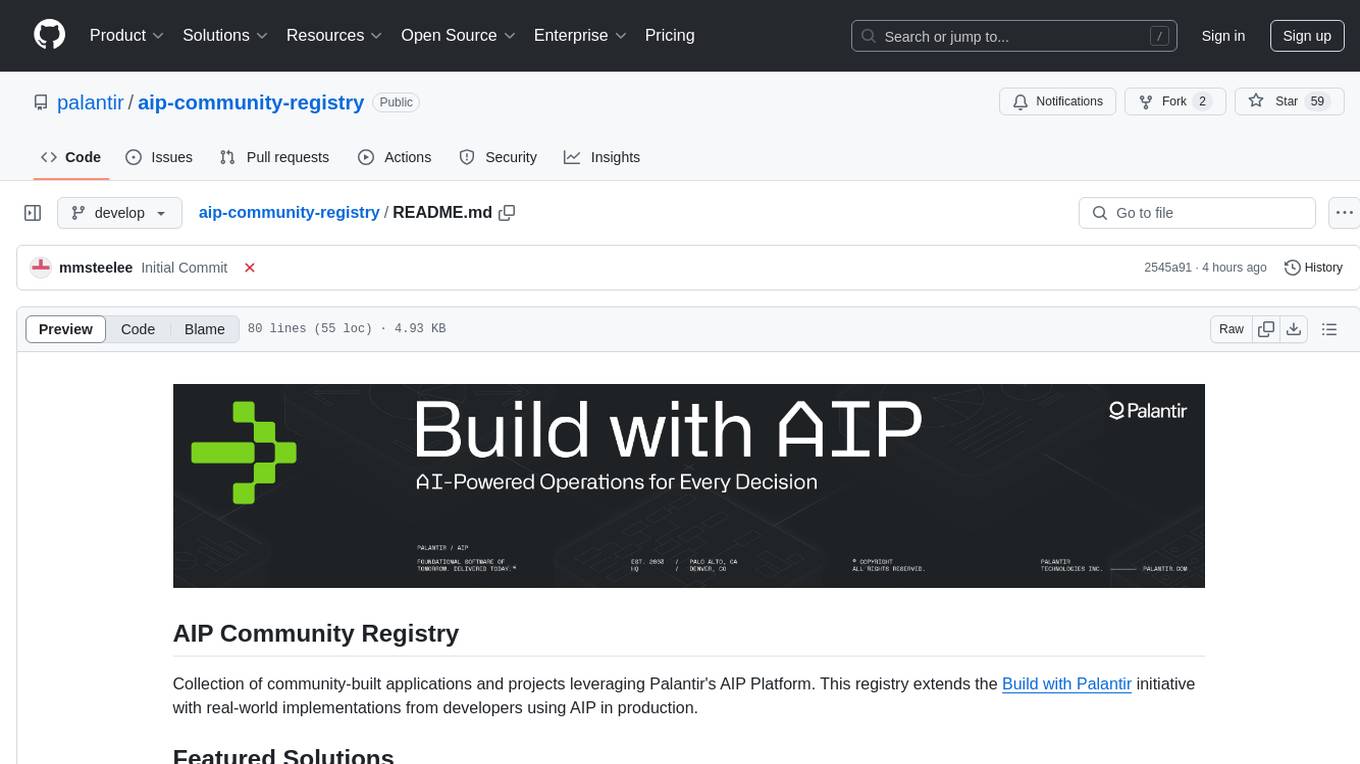
aip-community-registry
AIP Community Registry is a collection of community-built applications and projects leveraging Palantir's AIP Platform. It showcases real-world implementations from developers using AIP in production. The registry features various solutions demonstrating practical implementations and integration patterns across different use cases.
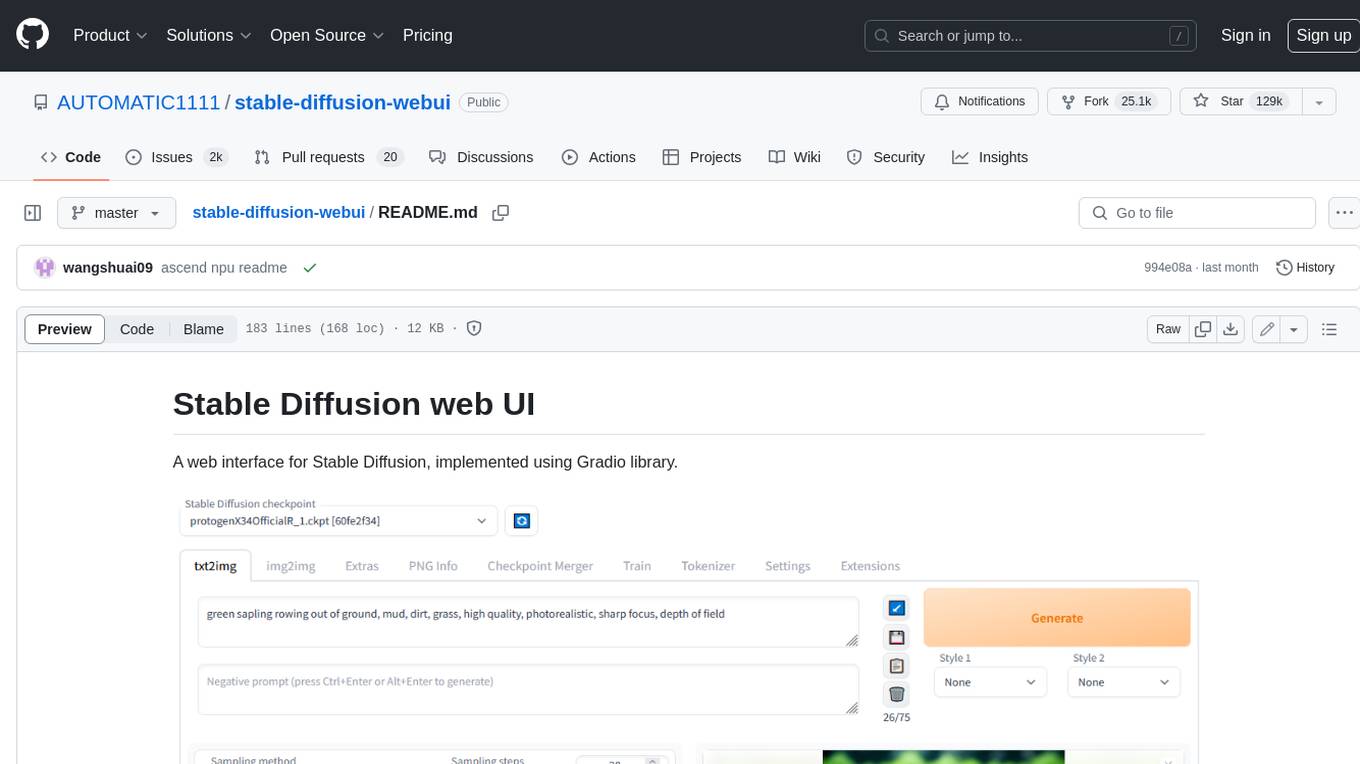
stable-diffusion-webui
Stable Diffusion web UI is a web interface for Stable Diffusion, implemented using Gradio library. It provides a user-friendly interface to access the powerful image generation capabilities of Stable Diffusion. With Stable Diffusion web UI, users can easily generate images from text prompts, edit and refine images using inpainting and outpainting, and explore different artistic styles and techniques. The web UI also includes a range of advanced features such as textual inversion, hypernetworks, and embeddings, allowing users to customize and fine-tune the image generation process. Whether you're an artist, designer, or simply curious about the possibilities of AI-generated art, Stable Diffusion web UI is a valuable tool that empowers you to create stunning and unique images.
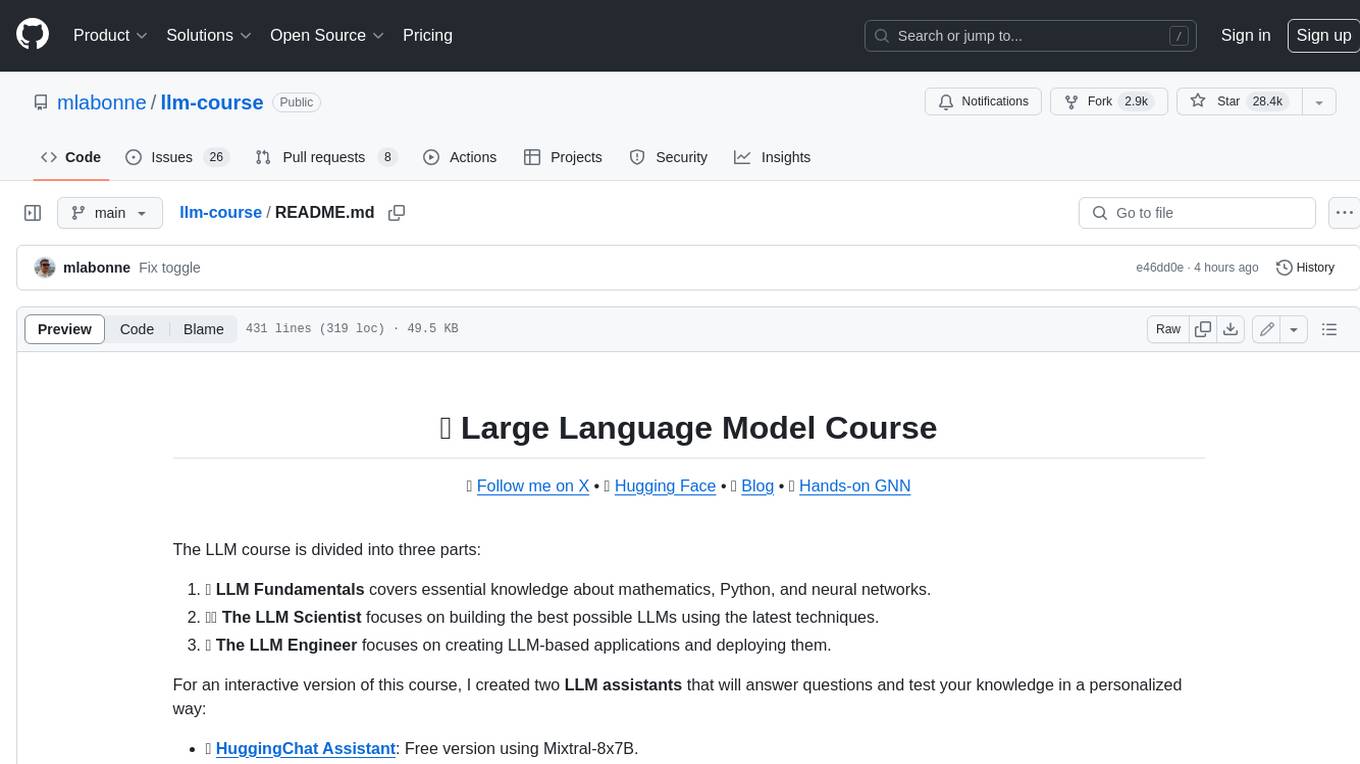
llm-course
The LLM course is divided into three parts: 1. 🧩 **LLM Fundamentals** covers essential knowledge about mathematics, Python, and neural networks. 2. 🧑🔬 **The LLM Scientist** focuses on building the best possible LLMs using the latest techniques. 3. 👷 **The LLM Engineer** focuses on creating LLM-based applications and deploying them. For an interactive version of this course, I created two **LLM assistants** that will answer questions and test your knowledge in a personalized way: * 🤗 **HuggingChat Assistant**: Free version using Mixtral-8x7B. * 🤖 **ChatGPT Assistant**: Requires a premium account. ## 📝 Notebooks A list of notebooks and articles related to large language models. ### Tools | Notebook | Description | Notebook | |----------|-------------|----------| | 🧐 LLM AutoEval | Automatically evaluate your LLMs using RunPod |  | | 🥱 LazyMergekit | Easily merge models using MergeKit in one click. |  | | 🦎 LazyAxolotl | Fine-tune models in the cloud using Axolotl in one click. |  | | ⚡ AutoQuant | Quantize LLMs in GGUF, GPTQ, EXL2, AWQ, and HQQ formats in one click. |  | | 🌳 Model Family Tree | Visualize the family tree of merged models. |  | | 🚀 ZeroSpace | Automatically create a Gradio chat interface using a free ZeroGPU. |  |
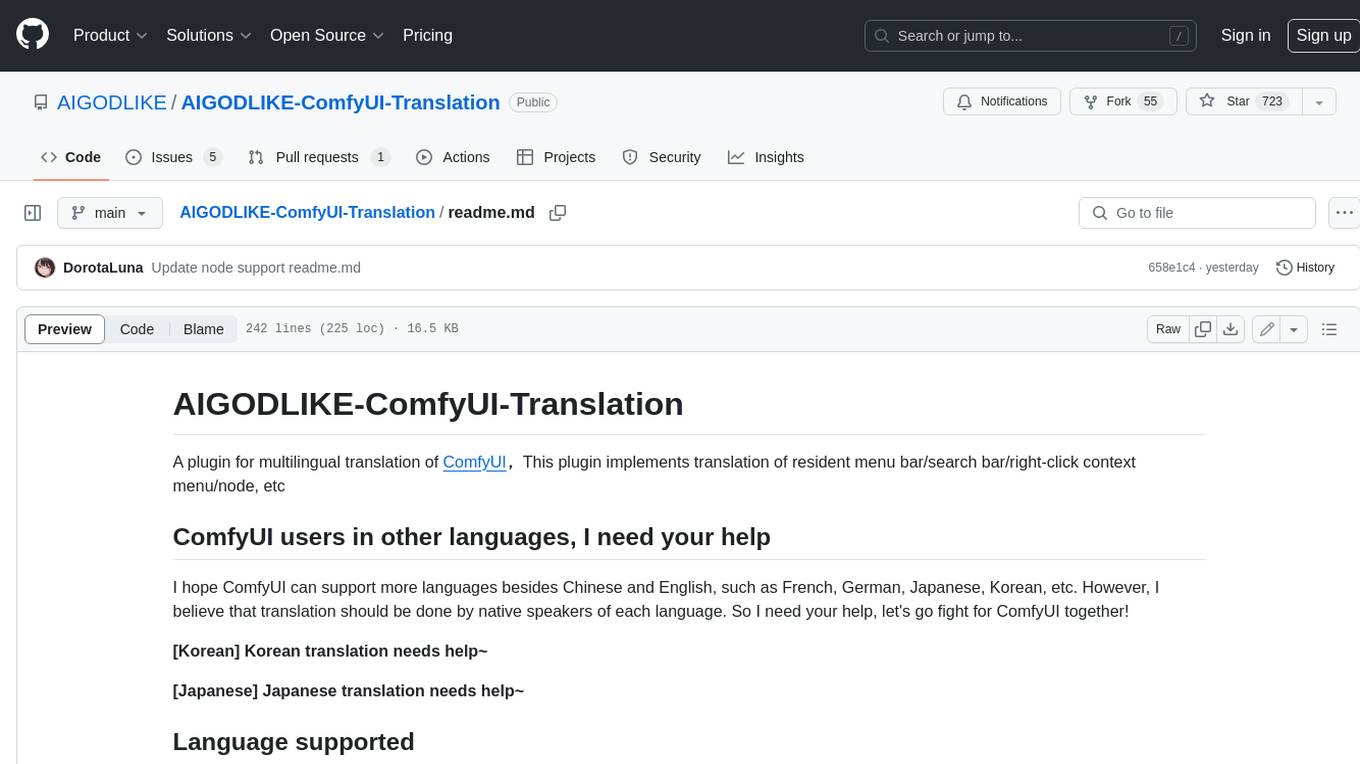
AIGODLIKE-ComfyUI-Translation
A plugin for multilingual translation of ComfyUI, This plugin implements translation of resident menu bar/search bar/right-click context menu/node, etc

llms-tools
The 'llms-tools' repository is a comprehensive collection of AI tools, open-source projects, and research related to Large Language Models (LLMs) and Chatbots. It covers a wide range of topics such as AI in various domains, open-source models, chats & assistants, visual language models, evaluation tools, libraries, devices, income models, text-to-image, computer vision, audio & speech, code & math, games, robotics, typography, bio & med, military, climate, finance, and presentation. The repository provides valuable resources for researchers, developers, and enthusiasts interested in exploring the capabilities of LLMs and related technologies.
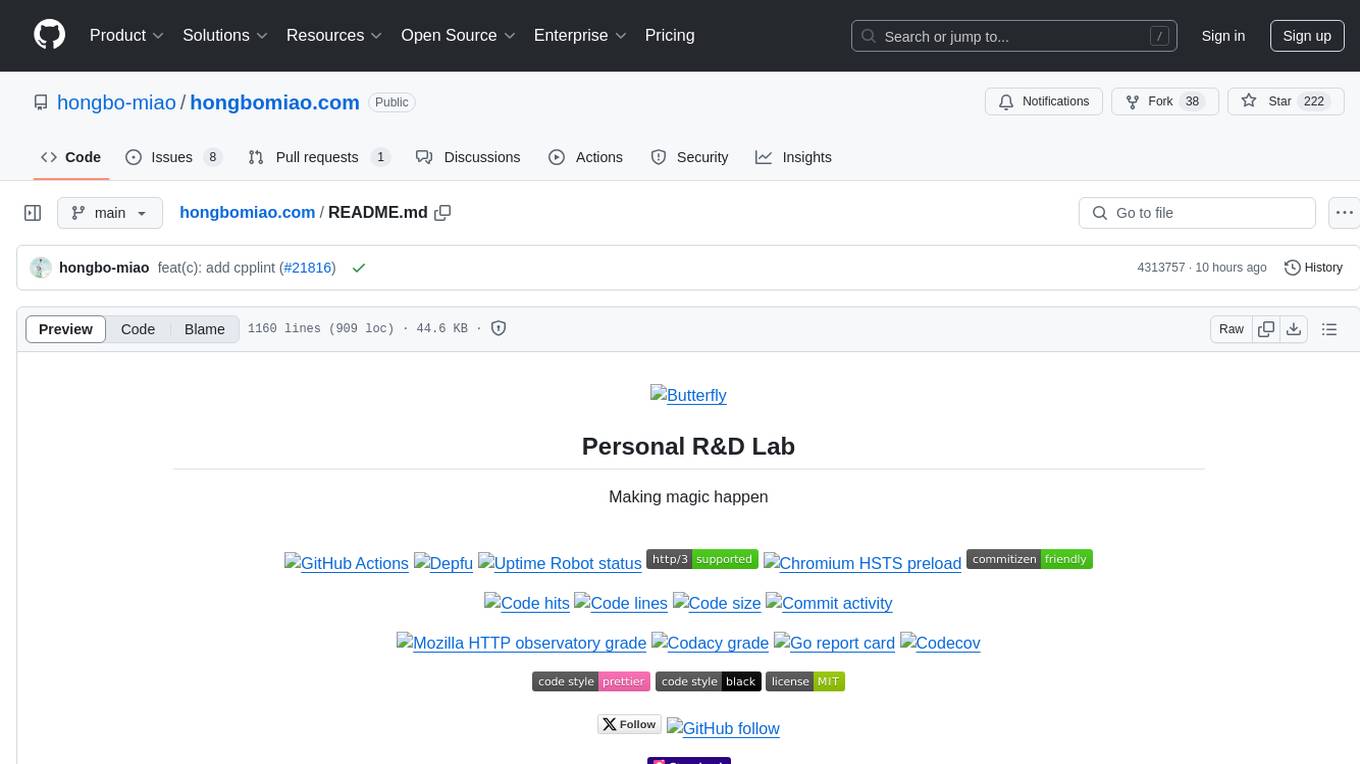
hongbomiao.com
hongbomiao.com is a personal research and development (R&D) lab that facilitates the sharing of knowledge. The repository covers a wide range of topics including web development, mobile development, desktop applications, API servers, cloud native technologies, data processing, machine learning, computer vision, embedded systems, simulation, database management, data cleaning, data orchestration, testing, ops, authentication, authorization, security, system tools, reverse engineering, Ethereum, hardware, network, guidelines, design, bots, and more. It provides detailed information on various tools, frameworks, libraries, and platforms used in these domains.
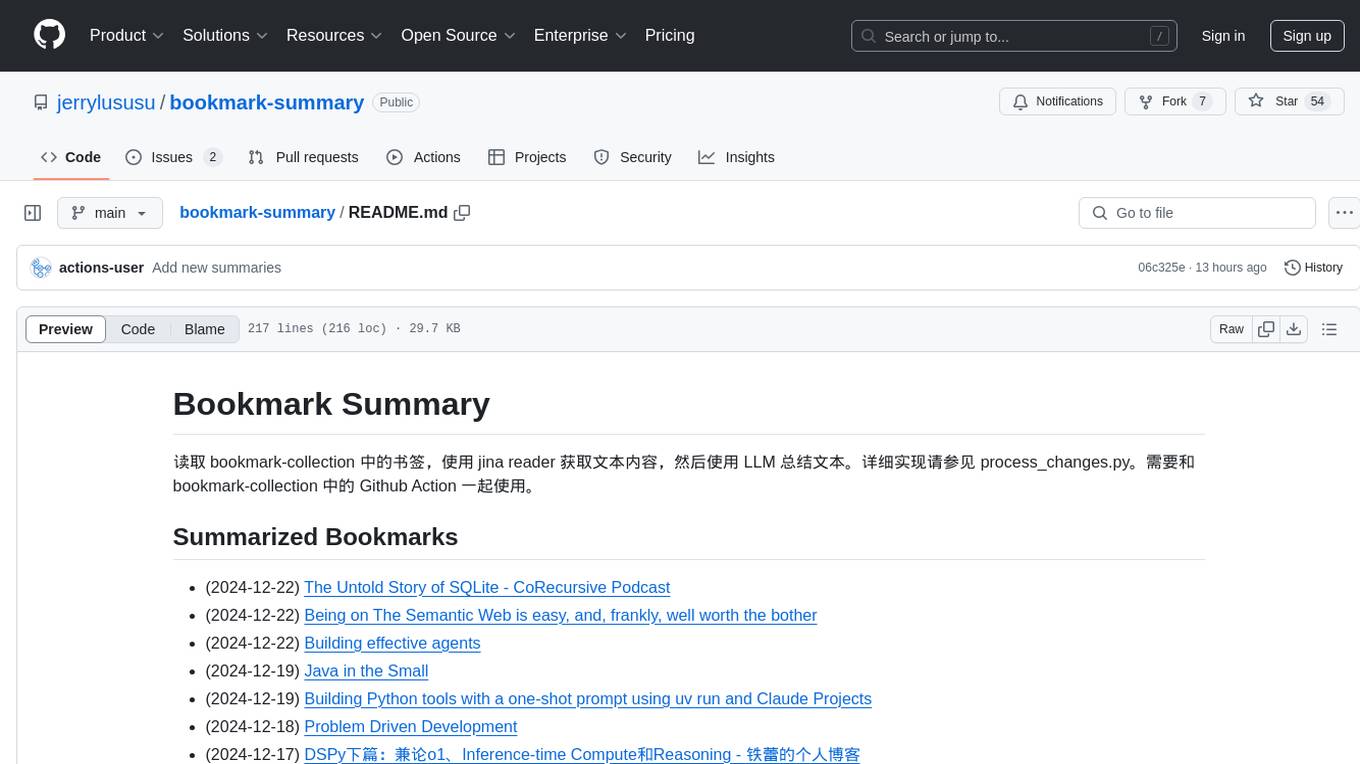
bookmark-summary
The 'bookmark-summary' repository reads bookmarks from 'bookmark-collection', extracts text content using Jina Reader, and then summarizes the text using LLM. The detailed implementation can be found in 'process_changes.py'. It needs to be used together with the Github Action in 'bookmark-collection'.
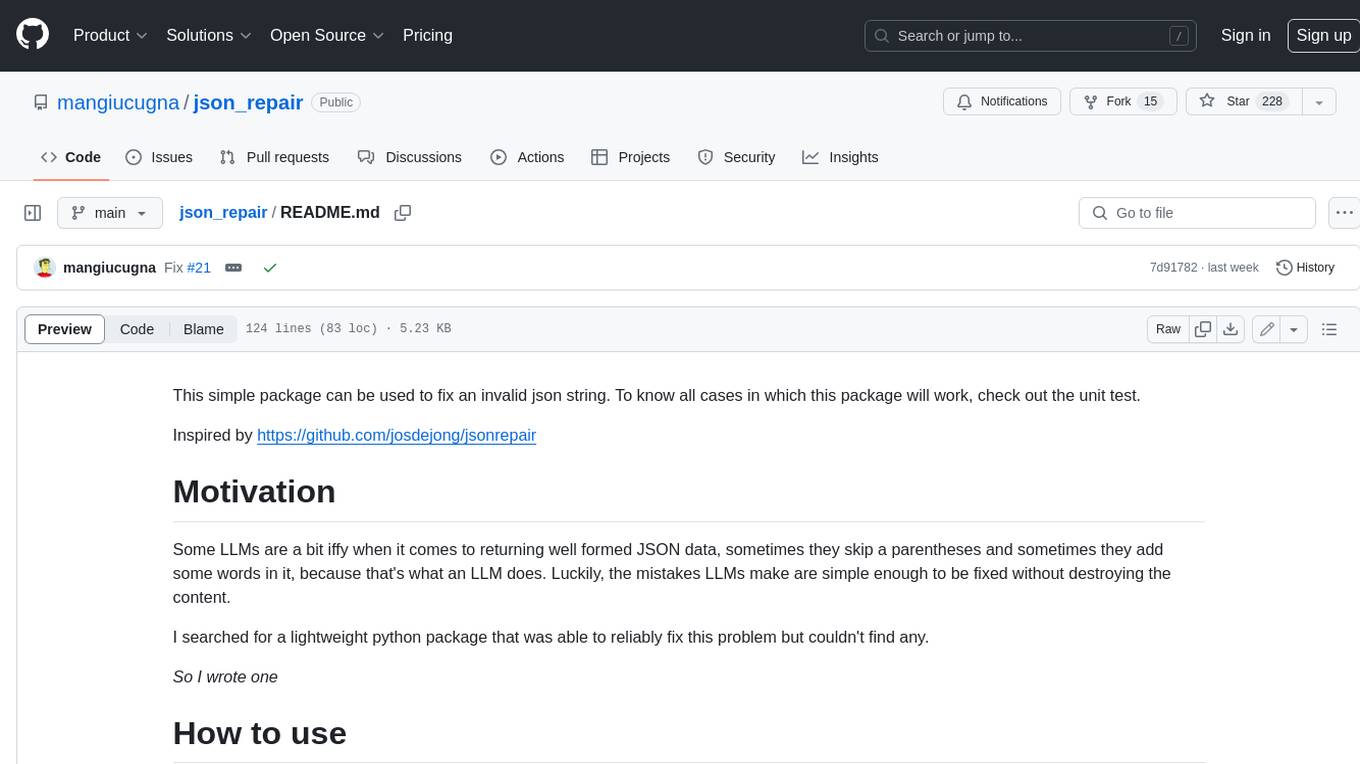
json_repair
This simple package can be used to fix an invalid json string. To know all cases in which this package will work, check out the unit test. Inspired by https://github.com/josdejong/jsonrepair Motivation Some LLMs are a bit iffy when it comes to returning well formed JSON data, sometimes they skip a parentheses and sometimes they add some words in it, because that's what an LLM does. Luckily, the mistakes LLMs make are simple enough to be fixed without destroying the content. I searched for a lightweight python package that was able to reliably fix this problem but couldn't find any. So I wrote one How to use from json_repair import repair_json good_json_string = repair_json(bad_json_string) # If the string was super broken this will return an empty string You can use this library to completely replace `json.loads()`: import json_repair decoded_object = json_repair.loads(json_string) or just import json_repair decoded_object = json_repair.repair_json(json_string, return_objects=True) Read json from a file or file descriptor JSON repair provides also a drop-in replacement for `json.load()`: import json_repair try: file_descriptor = open(fname, 'rb') except OSError: ... with file_descriptor: decoded_object = json_repair.load(file_descriptor) and another method to read from a file: import json_repair try: decoded_object = json_repair.from_file(json_file) except OSError: ... except IOError: ... Keep in mind that the library will not catch any IO-related exception and those will need to be managed by you Performance considerations If you find this library too slow because is using `json.loads()` you can skip that by passing `skip_json_loads=True` to `repair_json`. Like: from json_repair import repair_json good_json_string = repair_json(bad_json_string, skip_json_loads=True) I made a choice of not using any fast json library to avoid having any external dependency, so that anybody can use it regardless of their stack. Some rules of thumb to use: - Setting `return_objects=True` will always be faster because the parser returns an object already and it doesn't have serialize that object to JSON - `skip_json_loads` is faster only if you 100% know that the string is not a valid JSON - If you are having issues with escaping pass the string as **raw** string like: `r"string with escaping\"" Adding to requirements Please pin this library only on the major version! We use TDD and strict semantic versioning, there will be frequent updates and no breaking changes in minor and patch versions. To ensure that you only pin the major version of this library in your `requirements.txt`, specify the package name followed by the major version and a wildcard for minor and patch versions. For example: json_repair==0.* In this example, any version that starts with `0.` will be acceptable, allowing for updates on minor and patch versions. How it works This module will parse the JSON file following the BNF definition: <json> ::= <primitive> | <container> <primitive> ::= <number> | <string> | <boolean> ; Where: ; <number> is a valid real number expressed in one of a number of given formats ; <string> is a string of valid characters enclosed in quotes ; <boolean> is one of the literal strings 'true', 'false', or 'null' (unquoted) <container> ::= <object> | <array> <array> ::= '[' [ <json> *(', ' <json>) ] ']' ; A sequence of JSON values separated by commas <object> ::= '{' [ <member> *(', ' <member>) ] '}' ; A sequence of 'members' <member> ::= <string> ': ' <json> ; A pair consisting of a name, and a JSON value If something is wrong (a missing parantheses or quotes for example) it will use a few simple heuristics to fix the JSON string: - Add the missing parentheses if the parser believes that the array or object should be closed - Quote strings or add missing single quotes - Adjust whitespaces and remove line breaks I am sure some corner cases will be missing, if you have examples please open an issue or even better push a PR How to develop Just create a virtual environment with `requirements.txt`, the setup uses pre-commit to make sure all tests are run. Make sure that the Github Actions running after pushing a new commit don't fail as well. How to release You will need owner access to this repository - Edit `pyproject.toml` and update the version number appropriately using `semver` notation - **Commit and push all changes to the repository before continuing or the next steps will fail** - Run `python -m build` - Create a new release in Github, making sure to tag all the issues solved and contributors. Create the new tag, same as the one in the build configuration - Once the release is created, a new Github Actions workflow will start to publish on Pypi, make sure it didn't fail Bonus Content If you need some good Custom Instructions (System Message) to improve your chatbot responses try https://gist.github.com/mangiucugna/7ec015c4266df11be8aa510be0110fe4 Star History [Star History Chart](https://api.star-history.com/svg?repos=mangiucugna/json_repair&type=Date)

